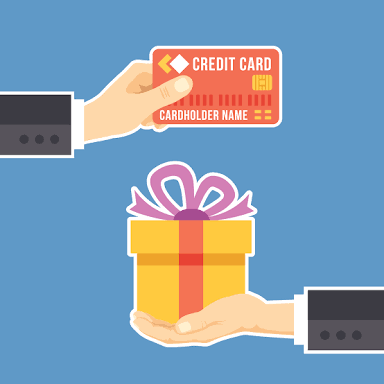.png)
What Is a Loyalty Program?
A loyalty program is a marketing strategy that is in a organised way
It is used by merchants to encourage customers to return and purchase their products or make use of their services. A traditional loyalty program requirement is for a customer to register with the merchant selling the products or services so they can acquire loyalty points. Considering the kind of business and the loyalty program type in place, the loyalty points could enable customers uncommon access to new products and services, used to get discounts on future buys or even get free merchandise.Some case of loyalty programs are regular flier miles offered by airlines, eatery points and hotel points that could be used in case of a future stay.
So how does it make a difference?
Loyalty program enables a business to retain clients to some reasonable extent.
The more subtle answer is that it enables businesses to save cost. Taking into the business industry, it costs companies between five and 25 times more to get new client than it costs to pitch to an existing client. Likewise, existing customers spend up to 33 percent more than new ones. Given these figures, it just bodes well for businesses to offer incentives, as loyalty programs, to keep its current customers cheerful. It likewise enables businesses to get valuable information about their customers' behaviour
Are these points significant at all?
They are kind of significant .
The 2017 Colloquy Loyalty Census Report found that enrollment in loyalty programs rose by around 15 percent from 2015 to 2017. It's important to take note that the increment rate recorded in 2015 was 26 percent, demonstrating that the growth in signups for loyalty programs is decreasing. Experts are of the opinion that information abundance is at the center of the declining enthusiasm of customers. There are essentially such a significant number of loyalty programs out there that it has turned out to be headache for a normal buyer to keep track of each loyalty program they are a part of. In addition, due to the various projects, it for the most part takes more time for consumers to amass enough points to benefit from loyalty programs. In an alternate report from Maritz Loyalty Marketing, 70 percent of overviewed customers forsake loyalty rewards since it took at least six to nine months to sufficiently collect points to claim rewards.
With customers seeing loyalty programs as less significant and henceforth making them not to return as it was expected, odds are it intrinsically costs businesses more to sell their products and services. To ensure loyalty programs deliver on their promise of retaining customers, we basically need to make rewards more profitable for the purchasers also that it turns into an easy participation for them.
So Blockchain can be of value to loyalty programs?
Without any doubt!
Truly, the Blockchain, being a decentralized system, can decentralize and connect together the divided loyalty rewards space, making loyalty points more significant at last.
What's more, how can it profit businesses?
At the essential level, a loyalty coin makes it less demanding for companies to get attention of their customers.
Without any conditions, giving customers loyalty points that they can spend wherever they like, or even trade for fiat cash, makes a merchant more important to clients. This should help in keeping customers. The main thing that may separate between competitors is the means by which they target customers and how much loyalty coins they offer.
Another advantage of a global loyalty cryptocurrrency to businesses is that it could enable them to lessen their loyalty risk. Risk is a record in the balance sheet of an organization that demonstrates what they're owing to other individuals or organizations. What's more, since loyalty points is a guarantee give clients discounts or even free things, which would add up to cash in future, it must be recorded as a liability. If by coincidence that each client chooses to redeem their points all at once, or in a similar period, the budgetary books of the organization are probably going to suffer. Since anyone can participate in the mining of coins, merchants could mine the loyalty coins for themselves and offer the loyalty coins to customers. They can also accept loyalty coins that other merchants mine.
The familiar loyalty points have no fiscal value to the merchant after it's been spent. And, that is the reason it's a win for businesses in light of the fact that, a Blockchain-based cryptocurrrencyy could be exchanged for fiat cash, helping them recover, in any event, a portion of the sales made with loyalty points.
How is this important to miners?
Miners are also compensated.
Like most different cryptocurrencies, these coins can be traded for different cryptocurrencies or fiat money. But, the maximum value is in the market size of the loyalty management market, which analysts in the Research and Markets Industry foresee would be worth 6.25billion dollars by 2023. The monetary value and widespread use advantage that a cryptocurrency brings could influence customers to embrace it all at once, which would drive the value of the cryptocurrency itself.
References
•https://www.crmbuyer.com/story/84657.html
NCASH (Nucleus Vision) and GATCoin are trying to do something along these lines in crypto, it'll be interesting to see if these types of loyalty strategies on the blockchain have success.
Downvoting a post can decrease pending rewards and make it less visible. Common reasons:
Submit